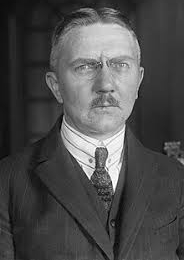Why did the left-liberal politician Hjalmar Schacht support the Nazis? Hjalmar Schacht’s support for the Nazis is a complex issue rooted in the economic and political turmoil of Weimar Germany. Despite his background as a liberal economist, Schacht found common ground with the Nazis primarily due to their shared goals of economic recovery and opposition to the Treaty of Versailles. Here are some key reasons for his support:
Economic Crisis and Stability:
During the early 1930s, Germany was in the grip of the Great Depression, with massive unemployment and economic instability. Schacht, a renowned economist and former President of the Reichsbank, was deeply concerned about the economic chaos. He believed that the Nazi Party’s promises to restore economic stability and reduce unemployment could be effective in addressing these issues.
Opposition to the Treaty of Versailles:
Schacht was a vocal critic of the Treaty of Versailles, which imposed harsh reparations and territorial losses on Germany. The Nazis’ strong opposition to the treaty and their nationalist rhetoric resonated with Schacht, who saw the treaty as an unjust and debilitating constraint on Germany’s economic and political sovereignty.
Pragmatic Considerations:
Schacht was a pragmatic and opportunistic figure. He saw the rising popularity of the Nazi Party as an opportunity to regain a position of influence and implement his economic ideas. By aligning himself with the Nazis, he secured key positions, such as Minister of Economics and later President of the Reichsbank under Hitler’s regime.
Nationalist Sentiments:
Schacht, like many Germans of his time, was influenced by nationalist sentiments. He believed that a strong, unified Germany was essential for economic recovery and national pride. The Nazi Party’s nationalist and anti-communist stance appealed to his desire for a powerful and economically robust Germany.
Personal Ambition:
Schacht’s ambition and desire for power also played a role in his support for the Nazis. By aligning with a rising political force, he could enhance his own influence and pursue his economic policies on a national scale.
Economic Policy Alignment:
While Schacht did not fully agree with all aspects of Nazi ideology, he supported their economic policies, especially those focused on reducing unemployment, reviving industry, and achieving autarky (economic self-sufficiency). His own economic strategies, such as the use of Mefo bills to finance rearmament without causing hyperinflation, were compatible with the Nazis’ goals.
Schacht’s support for the Nazis was thus a combination of pragmatic, ideological, and opportunistic factors. However, it is important to note that his relationship with the Nazi regime was not without tensions, and he eventually fell out of favor and was dismissed from his positions by 1939.








